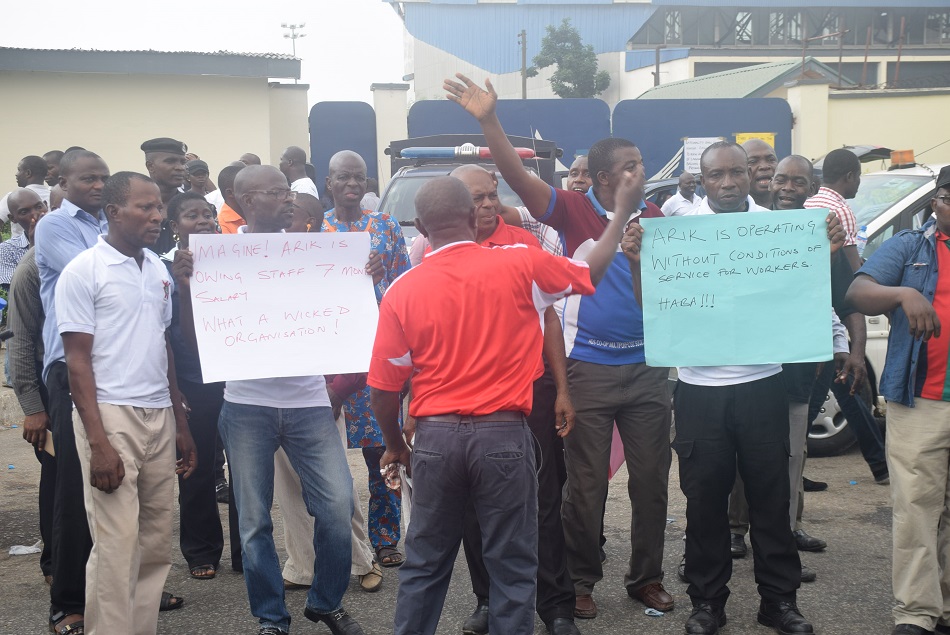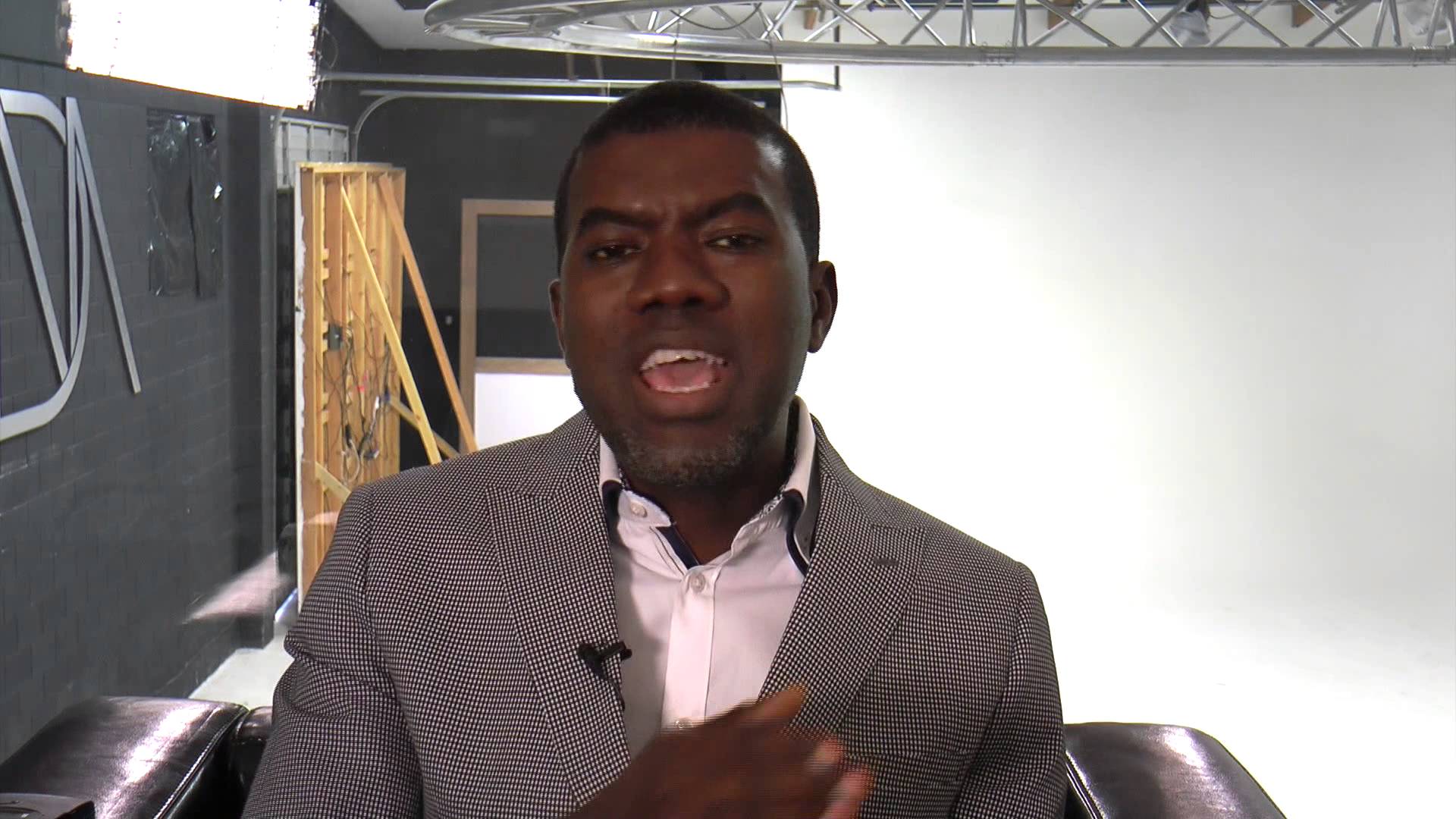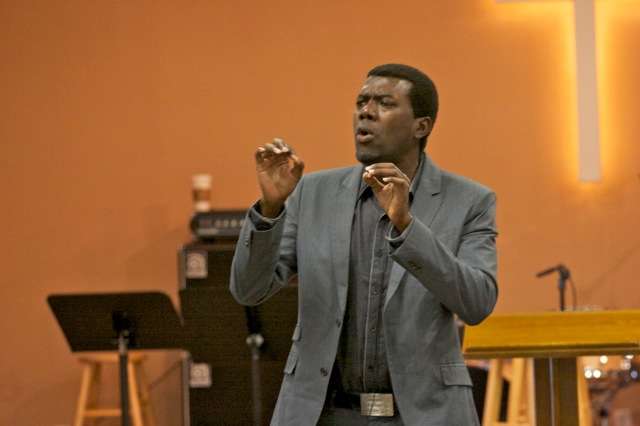Union members singing solidarity song during their protest at Arik 's head office demanding 7 months pay
By FEMI OYEDIRAN
The Asset Management Corporation of Nigeria (AMCON) recently took over control of Arik Air, Nigeria’s leading airline in order, we are told, to protect their anxious creditors, prevent a catastrophic shutdown of services to the public and preserve the jobs of their long-suffering employees. Arik, has debts of over 300 Billion Naira and needs the immediate infusion of another 10 Billion to continue operating; in short, Arik is too big to be allowed to fail. But this begs the questions: how did Arik, so big and so vital to Nigeria’s air transport industry, come to be teetering on the brink of failure in the first place? And what prospect does AMCON’s move hold out for a satisfactory and, one hopes, permanent solution?
Almost three years ago, in 2013, AMCON similarly took control of Aero Contractors Nigeria Limited, another major Nigerian airline burdened with unsustainable debt and on the brink of collapse. In its day ACN, an old respected brand in the industry, was the leading operator in the chartered and general aviation sector and a pillar of support for the logistics of Nigeria’s strategic oil industry. ACN’s venture into scheduled commercial operations led to a rapid decline. Again the questions: What went wrong? Can AMCON fix it?
The history of aviation in Nigeria is haunted by the ghosts of dead airlines and the carcasses of their defunct aircraft litter our airports, bodies that constitute a perpetual eyesore because the airport owners won’t allow them a decent burial.
Nigeria Airways Limited, the prototypical “national carrier” was one of the earlier casualties. Its long slow death began in the late 1980s when, inexplicably, its management sacked most of the expensively trained flight crew and then sold off most of its fleet of aircraft. NAL is an interesting study because its demise not only triggered a booming proliferation of private airlines, it also sowed the seeds and set the pattern for many of those new airlines to follow into their own early graves. NAL was the first, or at least the most famous, Nigerian airline to be destroyed by the wilful depredations of its owners, managers and staff. Although not actually pronounced dead until 2003, with debts of 60 Million Dollars, NAL declined from its peak in the 1980s and was effectively moribund from the early 1990s, having failed to produce audited accounts since the late 1960s. Up to 1985 NAL somehow managed to retain control of all moneys accruing to Nigeria under a plethora of Bilateral Air Service Agreements; when the military regime finally took away this unearned and wholly undeserved subsidy the airline was doomed. It took almost twenty years to wind up because the stakeholders could not agree on an equitable way to dispose of the huge real estate assets – prime properties in London, New York, and other foreign capitals as well as huge swathes of land in various upscale areas around the country, including a golf course in Ikeja GRA! All the properties at Murtala Mohammed Airport ended up going to Arik, at a knock-down price said to be in the region of 1 Billion Naira.
Advertisement
There follows a rollcall of private airlines of various degrees of longevity, or otherwise. Some deserve honourable mention. Intercontinental, was among the first wave, with its devastatingly noisy and inefficient Caravelle aircraft, of 1950s vintage. Kabo Air once dominated the skies, rivalling and eventually overtaking Nigeria Airways, inheriting many of their trained crew; the brand still survives operating seasonal Haj flights at home and abroad, but a mere shadow of its former presence since the passing away of the eponymous founder, Alhaji dan Kabo, Jarman Kano. Okada Air, named for the hometown of its founder the flamboyant Esama of Benin, competed with and eventually surpassed both Kabo and NAL, dominating the airspace with a large fleet of cheaply acquired BAC 111 aircraft, mostly acquired from British Caledonian Airways. Okada will always be remembered because the name was co-opted into the language of West Africa as a byword for speed and a certain cavalier attitude, now associated with commercial motorcyclists.
Aviation boomed through the eighties and on into the nineties and more people became aware of the opportunities. Successive Federal Governments granted the industry concessional access to subsidised foreign exchange and the business became attractive to some purely for the chance to access and round-trip foreign exchange. Smuggling had always been an optional side-line and, as corruption generated huge illicit piles of wealth, airline ownership came to be seen as a useful means of laundering and legitimising such wealth. There were some airlines founded on visions of reckless hubris our mere vanity. It is also fair to say that a class of predatory professionals sprang up, always ready to “help” gullible moneybags set up and knock down new airline ventures; so some were founded on naïve hopes and dreams and failed for lack of capital, management or, most likely both. The mentions grow less honourable as the list goes on: do you remember ADC, Sosoliso, Oriental? Some of these airlines killed people. Albarka, Zenith, Barnax, Harka, all very short-lived (Zenith operated for less than a week). Chanchangi made a robust showing, leveraging on the owner’s experience in road transport but fell apart when the owner passed – a common occurrence in all categories of business in Nigeria. This is not, by any stretch, a comprehensive list.
So, why do all our airlines fail? Everyone agrees that the potential market for air transport services in Nigeria and West Africa is huge and mostly untapped. However, it is important to note that the airline business is complex, highly regulated, competitive and hugely capital intensive (with razor-thin margins and almost all costs denominated in Dollars). It requires very serious planning and the patience and discipline to enforce adherence to carefully thought-through long-term strategies. NAL thrived under management by KLM Royal Dutch Airlines, but our people were too eager to push out the foreigners and take over; the result was failure. Government has not helped. Government regulators and service providers (NCAA, FAAN, NAMA) impose charges that make Nigeria one of the most expensive places in the world to operate an airline. The same Government strictly constrains the fares that airlines are allowed to charge. Aviation fuel is so expensive here that many foreign operators now prefer to buy their fuel in Accra or Lome, making nonsense of our aspiration to be the aviation hub of Africa. We have very limited availability of the skilled human resources required to man this complex industry. The government-controlled College of Aviation Technology, Zaria has not kept up with demand. Rather than invest in training, airlines compete destructively for scarce human resources, driving up costs and leaving them open to exploitation by expatriate “experts”. Of course, trying to finance a business with a return on investment of maybe 10% with loans from Nigerian banks at 30% is a non-starter.
Advertisement
Now AMCON, Nigeria’s very own investor of last resort is riding to the rescue, but how well equipped is AMCON to solve any of these problems? Access to relatively cheap funds is helpful but not sufficient to turn around this ailing industry. Where will the personnel and management skills come from? As AMCON rescues failing banks, manufacturers and airlines will we all end up working for AMCON, and will the titular change of control somehow produce a new breed of managers, or change the predatory attitude of state-sponsored agencies as they struggle to sustain their bloated workforces? Will AMCON be able to call in the external resources of expertise and experience we need, based elsewhere in the global village we live in? Or persuade our interventionist government to hands-off and allow market forces to weed out weak or unviable actors while providing long-term support to the strong?
Nigerians are optimists by nature and by choice. One has to believe that somehow AMCON will succeed in its Herculean task.
Views expressed by contributors are strictly personal and not of TheCable.






